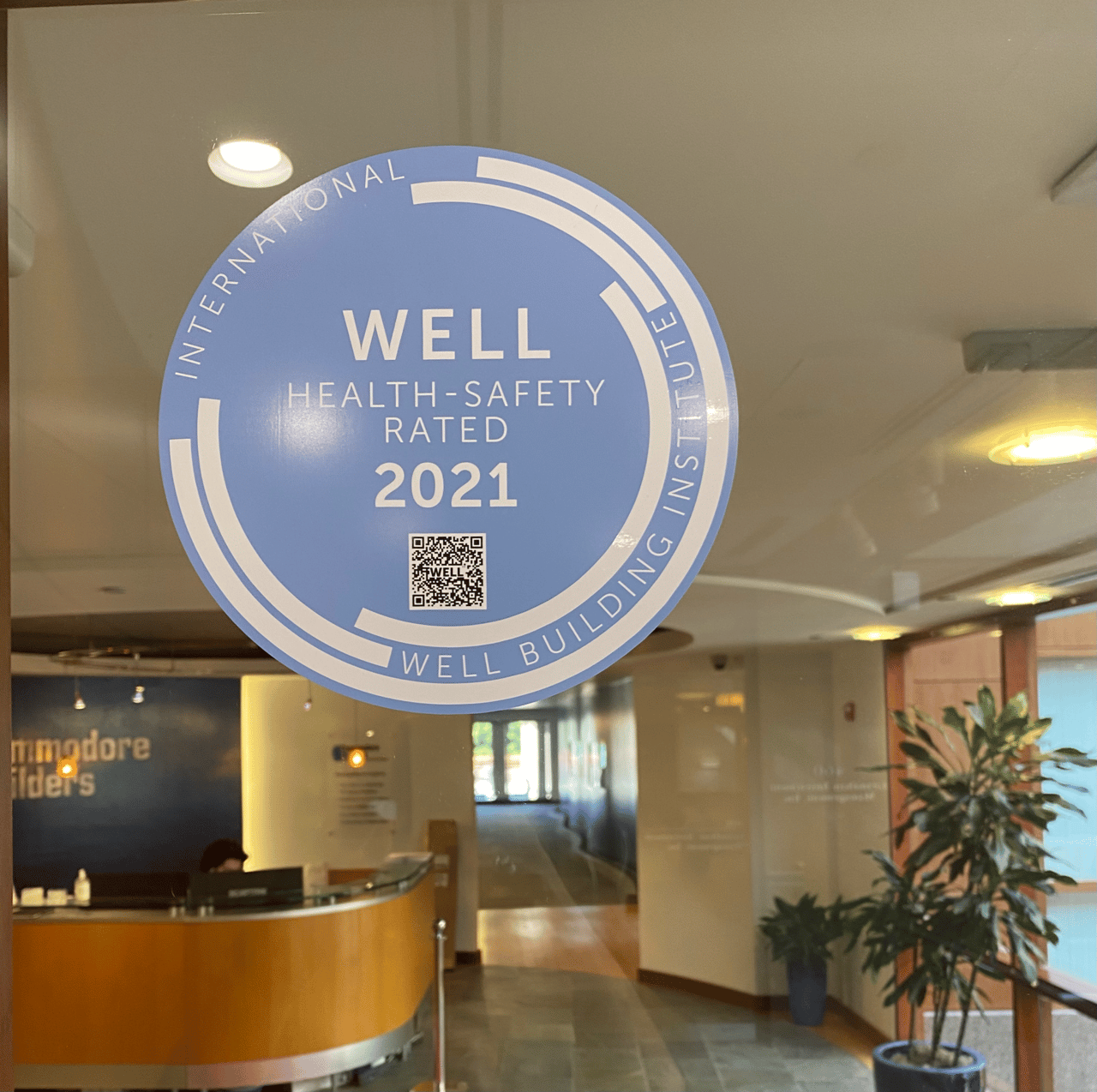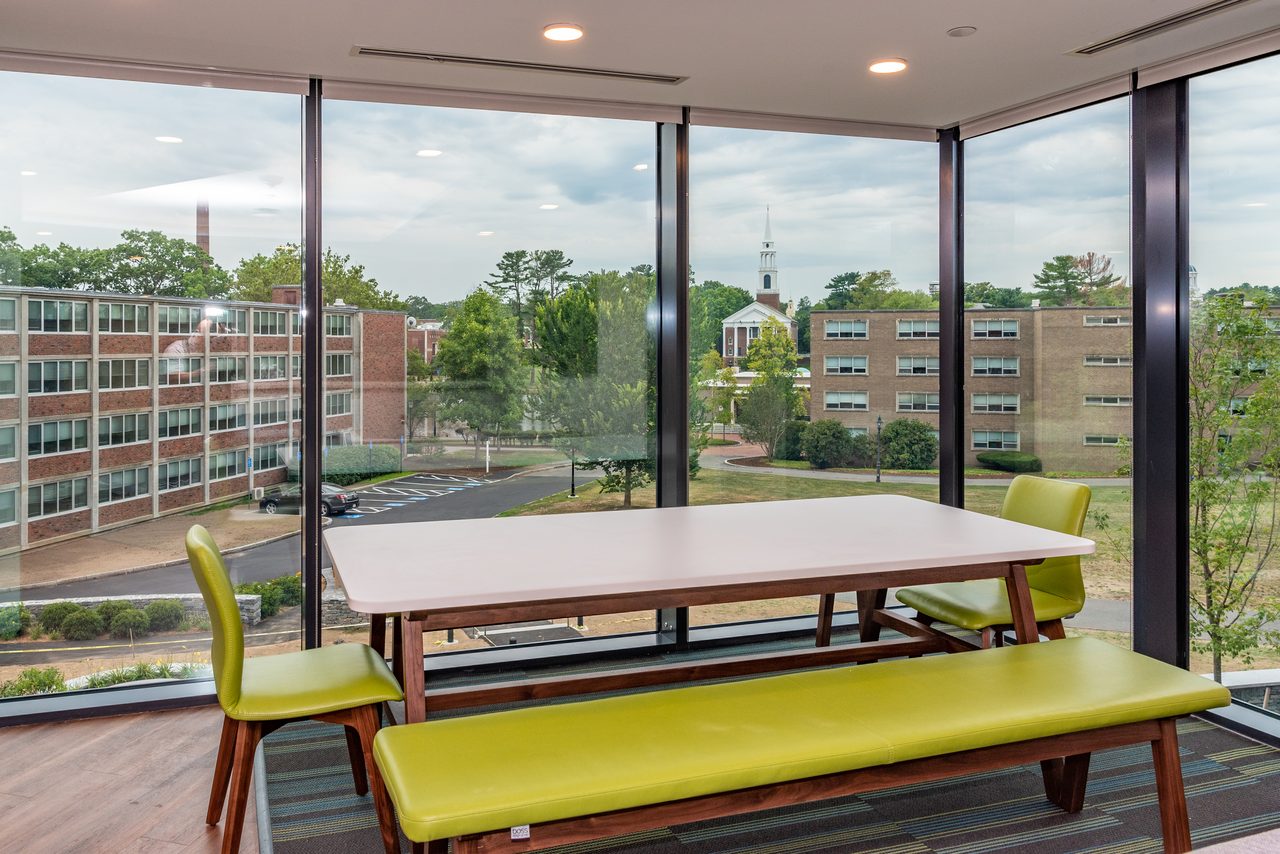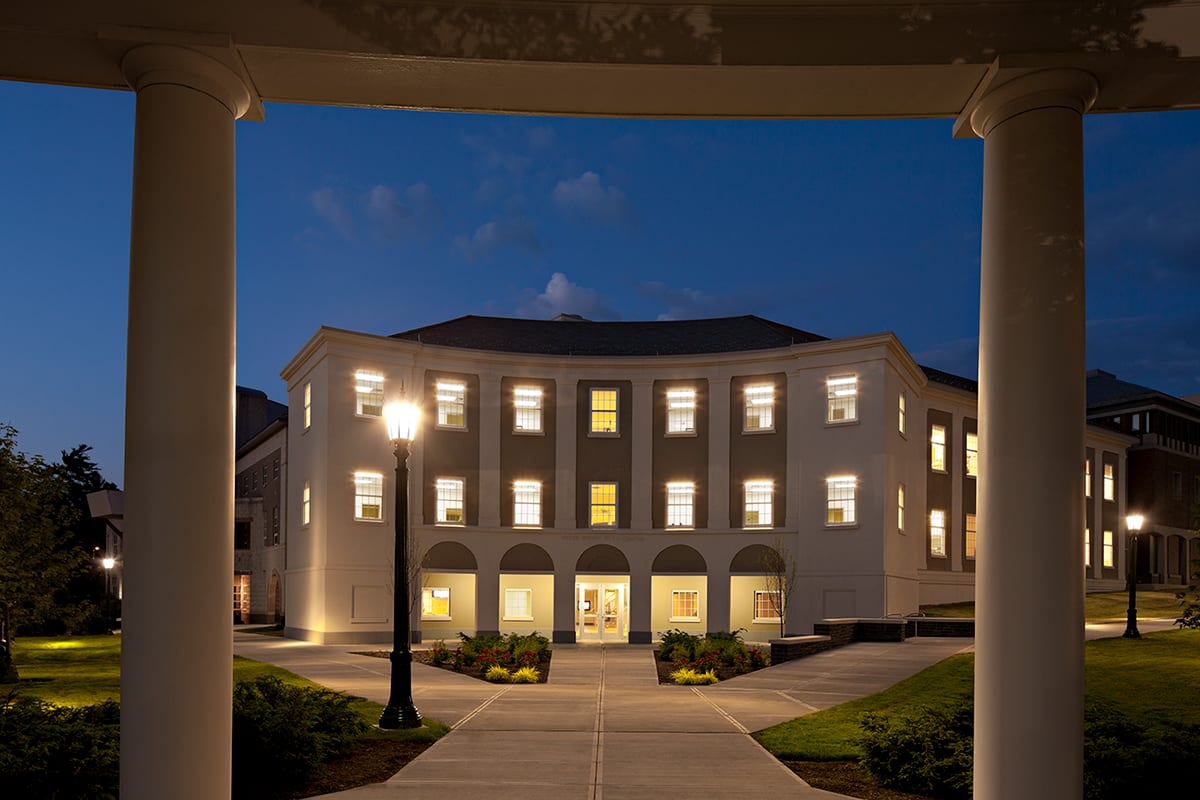
Incorporating sustainability into your new buildings and renovations gives your institution a competitive edge. It improves your students’ well-being and can defray
long-term building, operations, and maintenance costs.
Demand for environmentally-friendly facilities is rising among colleges and universities across the country, and Commodore understands why. We built Massachusetts’ first passive house residence hall, New England’s first passive house multi-family building, and Boston’s first cross-laminated timber (CLT) building.
Commodore’s own corporate headquarters is one of the first offices in the state to achieve the exacting WELL Health-Safety rating. We share the growing appreciation for sustainability in buildings, and we know how to achieve it.
As climate change accelerates, so is the commitment to sustainable campuses, enabled by green building-rated systems.
BUILDING
SUSTAINABLE
LEARN MORE
LEADERSHIP
WHAT ARE MY OPTIONS?
Commodore can help you meet your sustainability goals through a choice of different systems and certifications. Some are easier to achieve than others. Whichever path you choose, Commodore has the experience to guide you through these processes and, in some cases, has been the first to do so, leading the way for our clients.
By selecting Commodore as your construction manager, you will gain a partner committed to sustainability who will help you create the next generation of sustainable buildings on your campus with the knowledge that comes from experience.
CLICK ON THE DIFFERENT GREEN BUILDING RATING SYSTEMS BELOW TO LEARN MORE
WHAT'S
NEXT?
ADDITIONAL
OFFERINGS
Would you like to know more about how Commodore can help you create a more sustainable campus?
Please reach out to Lisa Ulbrich. We’re here to help you build the spaces you need today so your campus will thrive well into a greener future.
WANT TO LEARN MORE?
Commodore is committed to sustainability in our construction management process. We’re continuously improving our in office and jobsite operations, as well as coordinating with architects, engineers, and designers to create building plans founded on the industry’s best practices.
Prioritizing new, less carbon intensive materials, shortening supply chains, efficient deconstruction, and on-site sorting of decommissioned materials are just a few of the ways we’re innovating on our project sites.
Are you interested in making a more positive impact with your building process? Ask us about the following programs that reduce negative environmental impacts and increase positive community engagement.
- Site separation of Construction and Demolition (C+D) waste for higher landfill diversion rates.
- Building equipment and material salvage/deconstruction for reuse applications with partners such as Boston Building Resources, Habitat for Humanity, and others.
- WELL Building focuses on human health and wellness in the built environment.
- Paperless jobsite initiatives.



